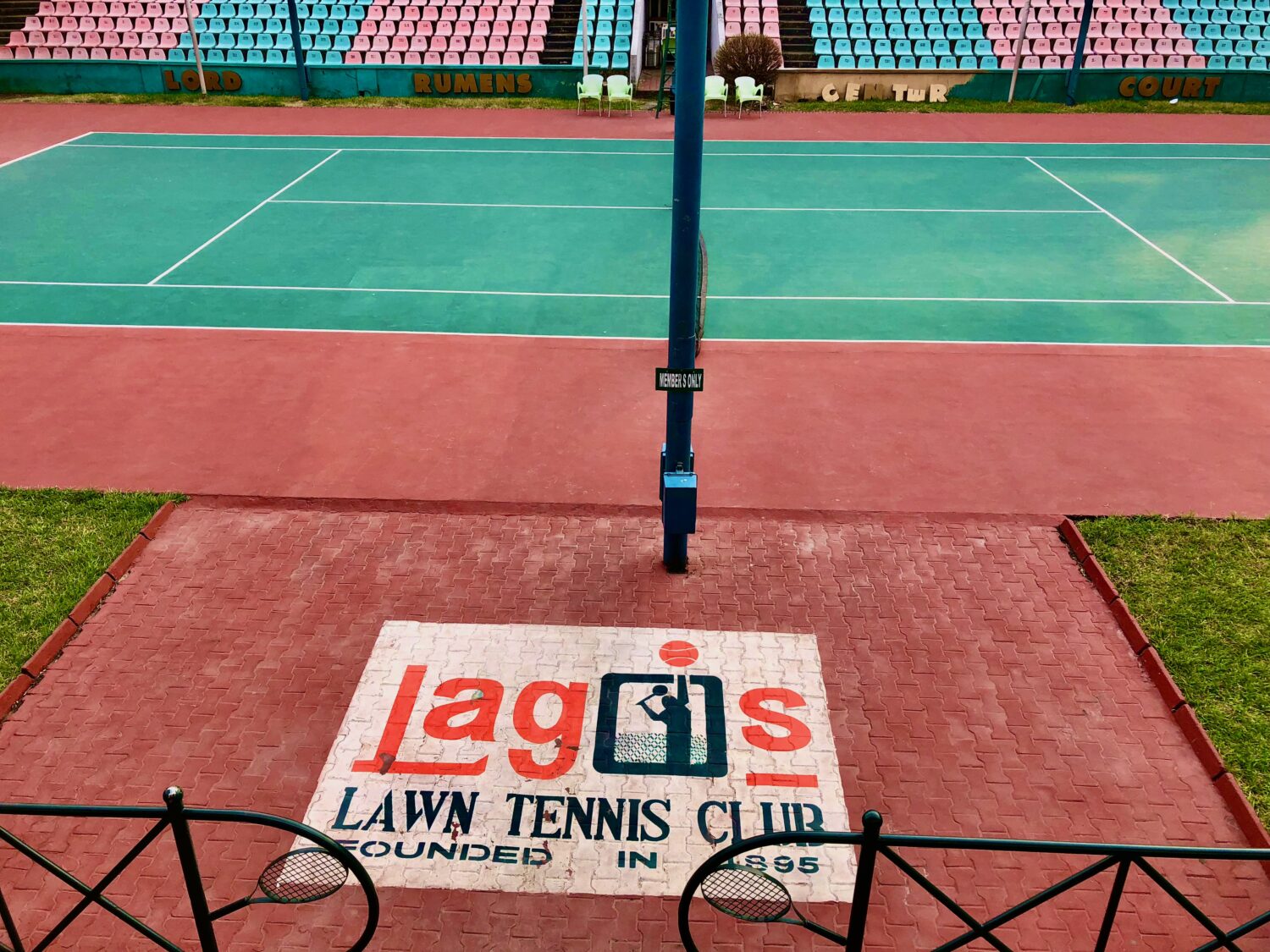Tennis in Nigeria
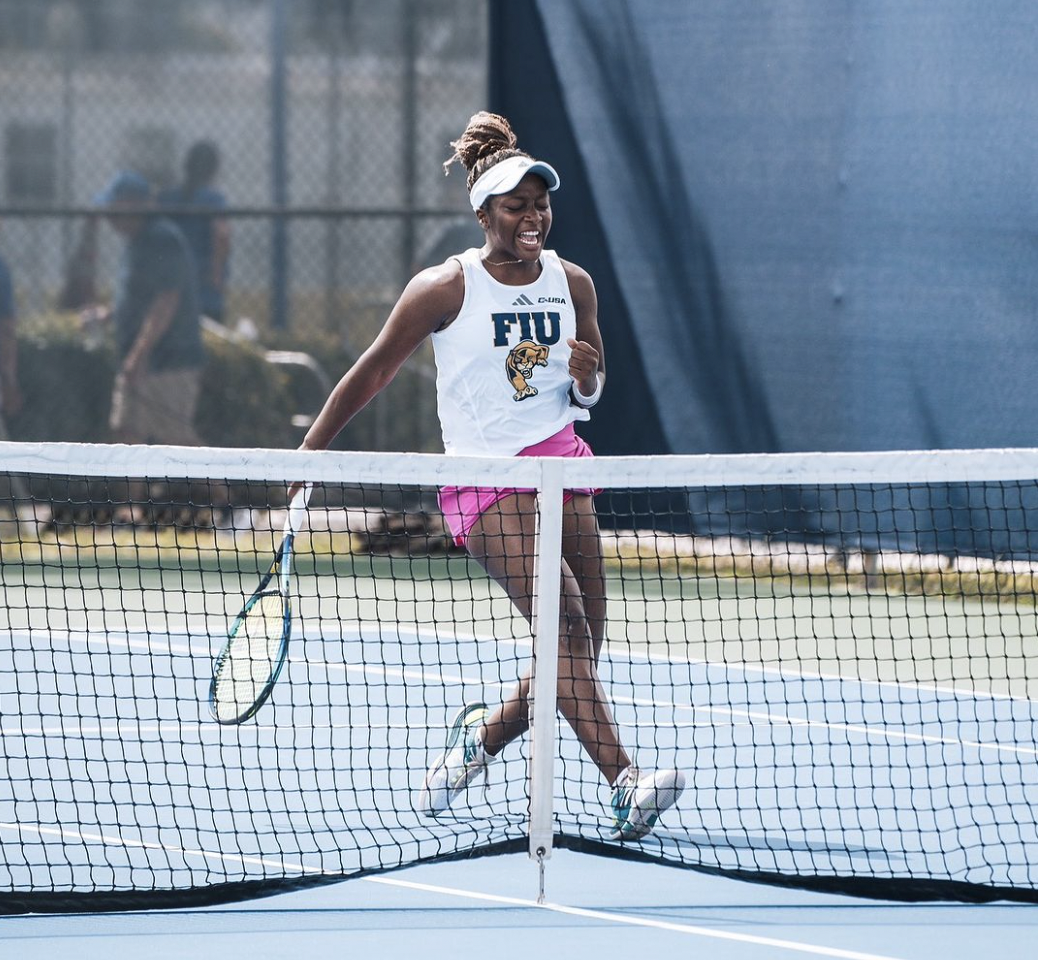
In winter 2018, Barakat Oyinlomo Quadre was on a break. Home from the former International Tennis Federation (ITF) training centre in Casablanca, Morocco, and trying to decide if she could continue with the ITF or try to go professional on her own she had come to the Lagos Lawn Tennis Club to bang some balls and weigh her options. “It’s much better to be an away champion and just win one or two (overseas tournaments), than a home champion in Nigeria and win all the tournaments,” Quadre said, her racquet-carrying father, Sikiru, always just five steps behind her.
Quadre ultimately elected to finish the academy and accepted an offer to attend Florida International University (FIU), where she went unbeaten in 13 college conference matches. In America, these statistics might not mean very much, but in Nigeria, they have earned her much acclaim, including a regular spot on Nigeria Tennis Live, the only channel in Nigeria — in West Africa, really — to cover tennis 24/7/365.
“The first tournament that I feel I actually won, although I lost it, was the Central Bank of Nigeria 2011 tournament. I lost to my sister’s friend in the finals. I cried, but ultimately in my heart, I won,” Quadre told NTL in a website segment last year. And for nearly every moment of Quadre’s career, Damilare Okunola, the founder and chief content officer of Nigeria Tennis Live has been there to cover it.
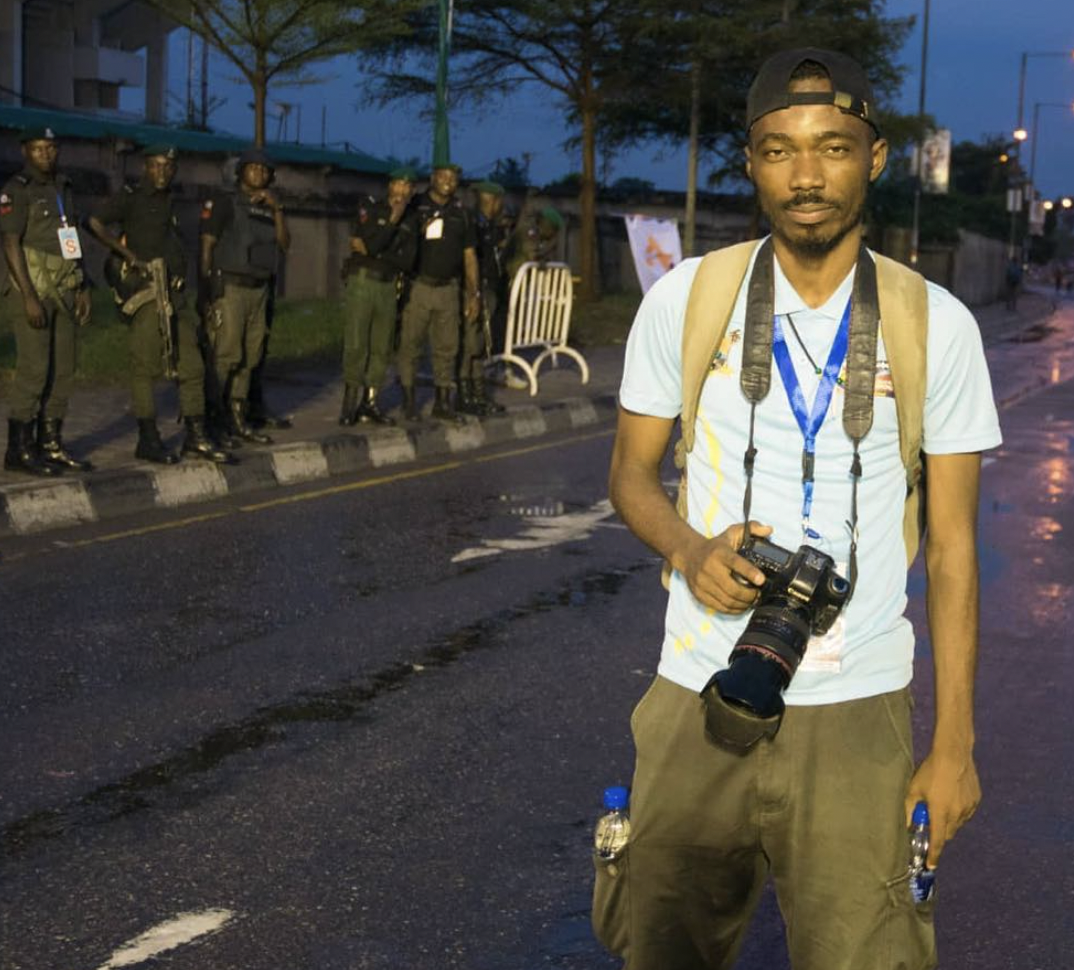
“Nigerian tennis lacked proper coverage and because there were very few people promoting the tennis brand in Nigeria. At the moment, there’s hardly anybody doing that, so Nigeria Tennis Live is bridging that gap,” Okunola says via What’s App from his home in Lagos, preparing to travel to cover another junior tournament somewhere across the 356,000 square miles of Nigeria — Africa’s most populous country. “People are getting to know more about Nigerian tennis on a surface level, but they don’t know about the various levels or the effort it takes to achieve from this part of the world.
“Everybody has this dream, some want to go to college, some want to go pro, some just want to play tennis at home, everybody has different ambitions and goals, and NTL has given much needed awareness to the sport.”
The self-proclaimed “Nigeria No. 1 Street Journalist,” Nigeria Tennis Live is Okunola’s side hustle. Most days, he juggles writing about, photographing and recording tennis at all levels with a day job as managing editor of voiceofnaija.org, an international online newspaper about Nigeria and the Nigerian diaspora. He started Nigeria Tennis Live in 2010, while producing for Am Sports, a local television show that featured daily athletic highlights, mostly football. While the show ran Okunola’s stories, the producers weren’t picking up on his idea to feature more tennis, especially from the ground up. At the recommendation of some other staffers, he started a blog and a presence on social media.
Since then, there’s been nowhere to go but up for Okunola and Tennis Nigeria Live.
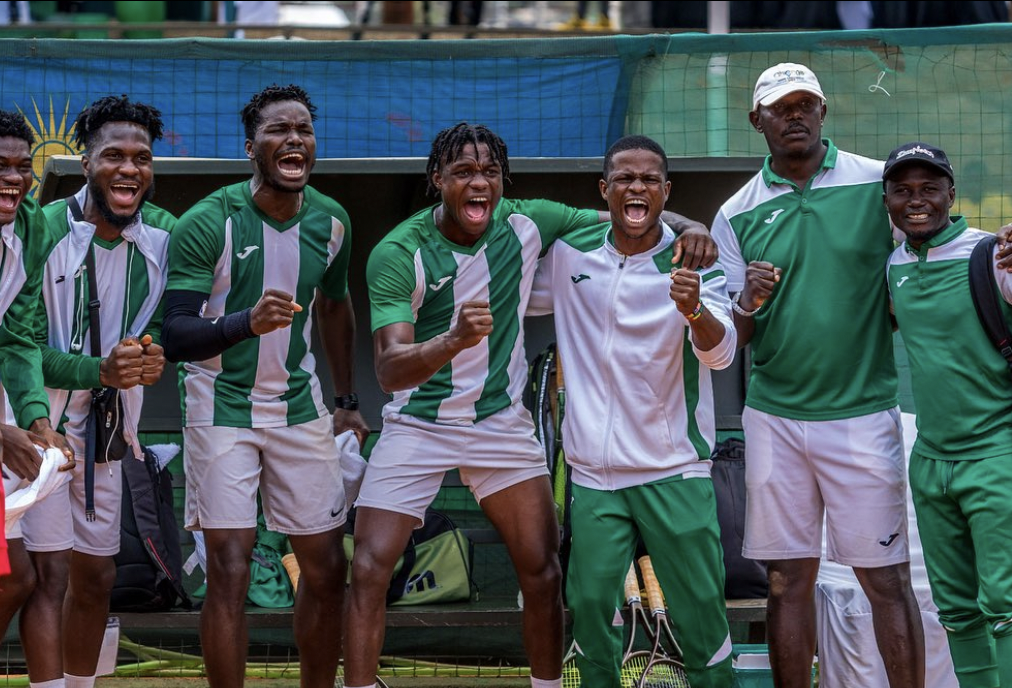
From the mid-19th century to 1960, the British Empire governed Nigeria, having annexed Lagos in 1861, and established the Oil River Protectorate in 1884. With colonization, the British soldiers and officials often brought the sports they played: cricket, polo, rugby, football, and yes, lawn tennis. While no one quite knows the origin of the Lagos Lawn Tennis Club, the first and oldest existing tennis club in Nigeria, at one point its serving president was Frederick John Dealtry Lugard, 1st Baron Lugard of Worcester, the first Governor-General of Nigeria from 1914 to 1919.
Nigeria’s tennis history has not been well chronicled — or at least not by a Western country — until the years of the country’s independence and the international struggle of professional tennis players collided. From 1968 to 1976, African-American player Arthur Ashe and his pal, Stan Smith, toured a good portion of Africa giving exhibitions on behalf of the U.S. State Department, and Ashe played the South African Open. At one point, Ashe and some of his peers played a small professional circuit in West Africa run by World Championship Tennis (WCT), and the Lagos Lawn Tennis Club — headed by Olatunji Ajisomo Abubakar Sadiq Alabi, better known as Lord Rumens, a Nigerian tycoon, philanthropist, and socialite — recruited Ashe to play in the $60,000 Lagos Open.
Unfortunately, on the fourth day of the Open, General Murtala Mohammed, the Nigerian Head of State, was assassinated in a military coup, and Ashe was marched at gunpoint off the LLTC’s centre court — now known as Lord Rumans Court — never to return. In 1978, before the cementing of the WTA and the ATP, another entity took over the Lagos tournament and ran it as a Grand Prix through 1980, when the ITF turned it into a stop in its Futures World Tour. In the 1980s and 1990s, the country produced such Olympic standouts as Tony Mmoh and Sule Ladipo, and in 2018, the pro tour granted the Governor’s Cup Lagos Tennis Championship, a coveted Challenger status, once step below the big dance. Still, “the likes of Rafael Nadal, Roger Federer, Novak Djokovic, the Williams sisters (Serena and Venus), Angela Keber and more coming to our shores to compete,” according to Afolabi Salami, an official of the Lagos Open, has not materialized.
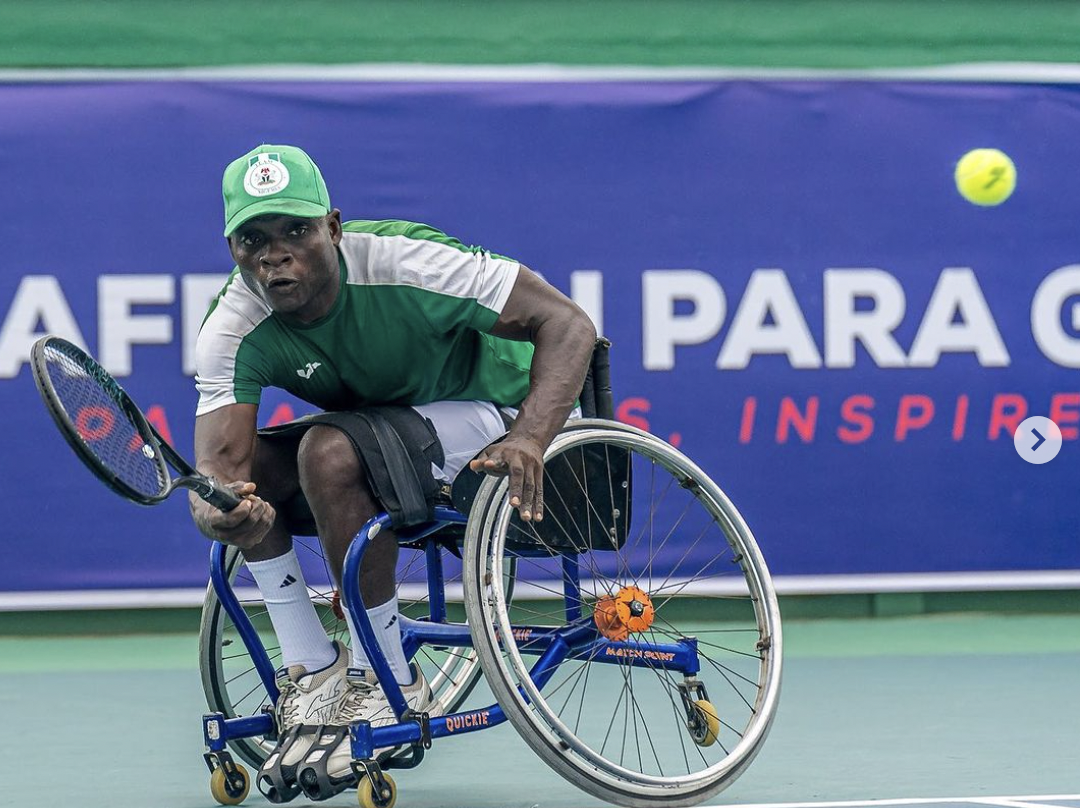
Back then, it was nearly impossible to garner an audience, or appetite, for international tennis. Commentators had to be flown to far off places, cameramen had to be hired and strategically placed and players had all sorts of rules and riders to their contracts. But with a iPhone or a portable his-res camera, sports journalists have popped up in the far reaches of the world. So it’s quite possible, that one day, that instead of the big names of tennis, Okunola will be filming some of the continent’s top players, such as Ghana’s Abraham Asaba, (ATP 1,762) and Naa Shika McKorley; Nigeria’s Christopher Bulus, (ATP No. 1,124) and Quadre; and Cote D’Ivoire’s Eliakim Coulibaly (ATP No. 472), or Burundi’s Sadi Nahimana (WTA No. 342) playing ATP and WTA 500 or 1,000 events at the LLTC, or other clubs in the region, such as the Accra Lawn Tennis Club (ALTC), the Seamen’s Club in Abidjan, Côte d’Ivoire and the Ayaba Tennis Club in Bamenda, Cameroon.
“Nigeria’s Tennis Live’s mission is to be able to put Nigerian players on the global map, and show the world that we can compete on the global stage, to be live at every event,” Okunola says, and this is the reason he climbs back into his car after a long day translating and editing to set off for another tennis event, including the upcoming African games in Accra. “Most of these guys need proper structure and follow-up, a plan for the year — we’ve had college coaches calls us and offer scholarships, tournaments give out wildcards and players donate equipment, just because of the exposure.
At the LLTC in the 70s, we had Lord Rumens to host these tournaments; if we had say, Serena Williams, donate $1 million for a season just to African players, just like Djokovic everywhere else, in Africa these players would walk along the streets and be the familiar faces of Nigerian tennis.”
